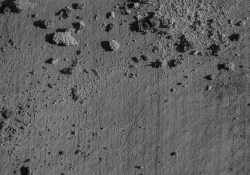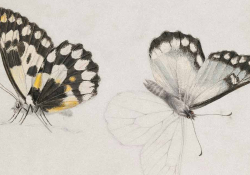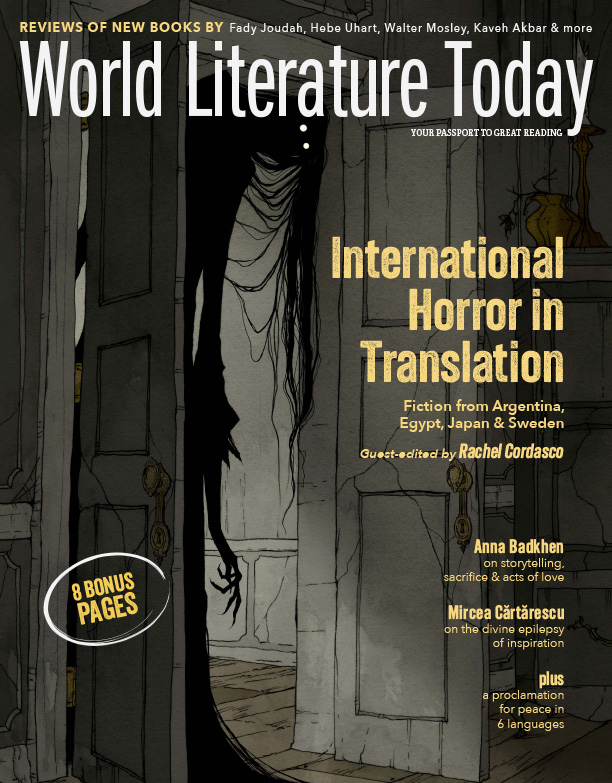A Proclamation for Peace in Many Languages
 This project grew from a conversation with Kim Stafford during the Oregon Society of Translators and Interpreters conference, “Words = A Pathway to Peace.” We decided to send a poem for peace around the planet by translating the former Oregon Poet Laureate’s “A Proclamation for Peace” into diverse world languages. “Hope seems small, sometimes,” Kim writes, while “kindness is seldom in the news and peace an abstraction.” Yet, at a time when the world is too much with us, these translations are not an abstraction; they are a way to summon change by broadcasting a call for peace in all directions. The project has now become a global effort, with every world region represented.
This project grew from a conversation with Kim Stafford during the Oregon Society of Translators and Interpreters conference, “Words = A Pathway to Peace.” We decided to send a poem for peace around the planet by translating the former Oregon Poet Laureate’s “A Proclamation for Peace” into diverse world languages. “Hope seems small, sometimes,” Kim writes, while “kindness is seldom in the news and peace an abstraction.” Yet, at a time when the world is too much with us, these translations are not an abstraction; they are a way to summon change by broadcasting a call for peace in all directions. The project has now become a global effort, with every world region represented.
The forthcoming book of these and other translations based on the poem includes versions of “A Proclamation for Peace” in over forty languages, including Asháninka, Gaeilge, Danish, Kiswahili, Quechua, Newar, Ukrainian, and Yoruba. One joy in compiling these translations has been to observe how translators from diverse countries and cultures call for world peace using unique interpretations of Kim’s words. In Anne-Charlotte Giovangrandi’s French adaptation, the proclamation becomes declaration, a “Déclaration de paix” (if we can “declare” war, why not peace?), while Tram Bui and Hai Tran see the poem as a “plea for peace” (lời khẩn cầu) in Vietnamese, and Prabu Muruganantham signals peace with the drumbeat of a murasu (அமைதியின் முரசு) in his Tamil translation.
For decades, the Stafford family has been “walking away” from war (as William Stafford wrote) while sowing peace through poetry. Like the rest of the book, the featured six translations into Arabic, Persian, Italian, Punjabi, Tagalog, and Yucatec Maya represent diverse linguistic and cultural traditions. Yes, our lives may seem short in 2024. Yes, we may be afraid. But may translation reach for cross-cultural understanding and peace. – Allison deFreese
The Original Poem and Eight Translations
A Proclamation for Peace
by Kim Stafford
Whereas the world is a house on fire;
Whereas the nations are filled with shouting;
Whereas hope seems small, sometimes
a single bird on a wire
left by migration behind.
Whereas kindness is seldom in the news
and peace an abstraction
while war is real;
Whereas words are all I have;
Whereas my life is short;
Whereas I am afraid;
Whereas I am free — despite all
fire and anger and fear;
Be it therefore resolved a song
shall be my calling — a song
not yet made shall be vocation
and peaceful words the work
of my remaining days.
* * *
Fredserklæring
Eftersom verden er et hus i brand;
Eftersom nationerne er fyldt med skrig;
Eftersom håbet nogle gange virker lille
en enkelt fugl på en ståltråd
efterladt af migrationen.
Eftersom venlighed sjældent er i nyhederne
og fred er en abstraktion
mens krig er en realitet;
Eftersom ord er alt, hvad jeg har;
Eftersom mit liv er kort;
Eftersom jeg er bange;
Eftersom jeg er fri – trods alt
ild og vrede og frygt;
Derfor skal det besluttes at en sang
skal være min mission – en sang
endnu ikke lavet, skal være mit kald
og fredelige ord arbejdet
i resten af mine dage.
Translated into Danish
by Sinéad Quirke Køngerskov
* * *
Dichiarazione di pace
Considerato che il mondo è una casa in fiamme;
Considerato che le nazioni sono sature di grida;
Considerato che la speranza pare poca cosa, a volte
un solo uccello su un filo
dalla migrazione dimenticato.
Considerato che la gentilezza di rado fa notizia
e che la pace è un’astrazione
mentre la guerra è reale;
Considerato che le parole sono tutto ciò che ho;
Considerato che la mia vita è breve;
Considerato che ho paura;
Considerato che sono libero — malgrado tutto
il fuoco e la rabbia e la paura;
Si delibera dunque che un canto
sarà la mia missione — un canto
non ancora composto sarà vocazione
e parole di pace l’opera
dei giorni che mi restano.
Translated into Italian
by Marella Feltrin-Morris
* * *
کم سٹیفرڈ
جد کہ دنیا اک اگ وچ سڑدا گھراے
تے قوماں چانگھراں ماردیاں ہون
جد کہ آس ماڑی جاپے، کسے ویلے
اک کلا پکھو تار اتے
جنہوں چھڈ گۓ ہجرت ویلے.
جد کہ مہردی گل خبراں اندر ویلے کویلے
تے امن خیالی گل ہووے
جدوں جنگ ہووے ٹھوس؛
کیونجے شبد ہی ہین میرے کول؛
جد کہ حیاتی میری کم ہے
جد کہ میں ڈردا ہاں;
جد کہ میں آزاد ہاں––– باوجود
اگ تے کرودھ تے ڈر دے؛
اے تاں ٹھان لئی کہ اک گاون
میری کوک ہوسی– اوہ گاون
جہڑا حالی پنگھریا نئیں میرا پیشہ هوسی
تے امن دے بول میرا کم
میری رہندی حیاتی تائیں.
التها: معظم شیخ تے آمنہ علی
Translated into Punjabi
by Moazzam Sheikh & Amna Ali
* * *
Isang Proklamasyon para sa Kapayapaan
Bagaman at dahil isang nagliliyab na bahay ang mundo;
Dahil at bagaman sukdulan ang mga bansa sa sigawan;
Bagaman at dahil wari’y maliit ang pag-asa, minsa’y
nag-iisang ibon lamang sa kawad
na napag-iwanan ng migrasyon.
Dahil at bagaman bihira ang kagandahang-loob sa balita
at isang ideyang halaw lamang ang kapayapaan
habang ang digmaan nama’y tunay;
Bagaman at dahil mga salita lamang ang taglay ko;
Dahil at bagaman maikli lamang ang buhay ko;
Bagaman at dahil natatakot ako;
Dahil, bagaman, sapagkat ako’y malaya — sa gitna ng lahat
ng apoy at galit at takot;
Kung kaya sa gayo’y napagpasyahan na isang awit
ang aking magiging lunggati — isang awit
na hindi pa buo ang siyang magiging bokasyon
at mapapayapang salita ang magiging likhain
ng mga nalalabi ko pang araw.
Translated into Tagalog
by Su Layug
* * *
Ikede fun Alafia
Nitori pe gbogbo aye n jona
Nitori pe gbogbo orile ede n pariwo
Nitori pe ireti dabipe otitan, nigba miran
eye kan shosho
le ba le oke ile.
Nitori pe ife showon ninu iroyin
be naa ni alafia showon
ogun si po pelu;
Nitori pe ewi nikan ni mo ni
Nitori pe ojo ori mi ko po mo
Nitori pe eru si n bami;
Nitori pe mo shi ni ominira – nigba
ijona ati ibinu ati ijaya;
Nitori naa, orin yii
Ni o je ipe mi – orin
Itura ti a n wa pelu oro alafia
Ni mo ma maa ko l’ojojumo
Titi ojo aye mi.
Translated into Yoruba
by Abayomi Animashaun
* * *
K’a’aytajt’aan yo’olal ets’a’an óolal
Tukulta’ake’, yóok’olkaabe’ jump’éel naj táan u yelel,
Tukulta’ake’, tu kaajilo’ob yóok’olkaabe’ tataj aawat ku yúuchuli’;
Tukulta’ake’ yaan k’iine’, alab óolal ku bin u jump’íittal
juntúul ch’íich tu juunal t’uchukbal tu suumil cable,
xúump’atta’ab tumen u yéet máani’máan ch’íich’ilo’ob.
Tukulta’ake’ utsil ba’alo’obe’ óol ma’ mantats’ ku k’i'itbesa’al noticiasi’,
ets’a’an óolale’ istikyaaj u na’ata’al jach ba’axi’
ba’ax jach táan u yúuchule’ ba’ate’eltáambalil;
Tukulta’ake’, chéen ja’alil t’aano’ob ku jaajtal tin kuxtal;
Tukulta’ake’, in kuxtale’ mix chowaki’
Tukulta’ake’, saajaken;
Tukulta’ake’, ku páajtal in beetik ya’ab ba’al tumen ma’ paliltsilta'aneni’
kex yéetel tóoch’balil, muk’ulmuuk’ yéetel kikil óolalil;
Le o’olal ichil jump’éel k’aay kun jóok’ol
leti’ ba’ax in k’áat, jump’éel k’aay
kex mix patjo’olta’ake’, leti’ ba’ax in k’áat
yéetel u t’aanilo’ob éets’a’an óolal
tak tu xuul u k’iinilo’ob in kuxtal.
Translated into Yucatec Maya
by Lizbeth Carrillo Can
Click here to read the Arabic version translated by El Habib Louai
Click here to link to the Persian version translated by Alireza Taghdarreh
Editorial note: “A Proclamation for Peace” first appeared in Wild Honey, Tough Salt (Red Hen, 2019) and was reprinted in the chapbook My Friend in War: Poems for Peace in Israel and Gaza (2024).






















